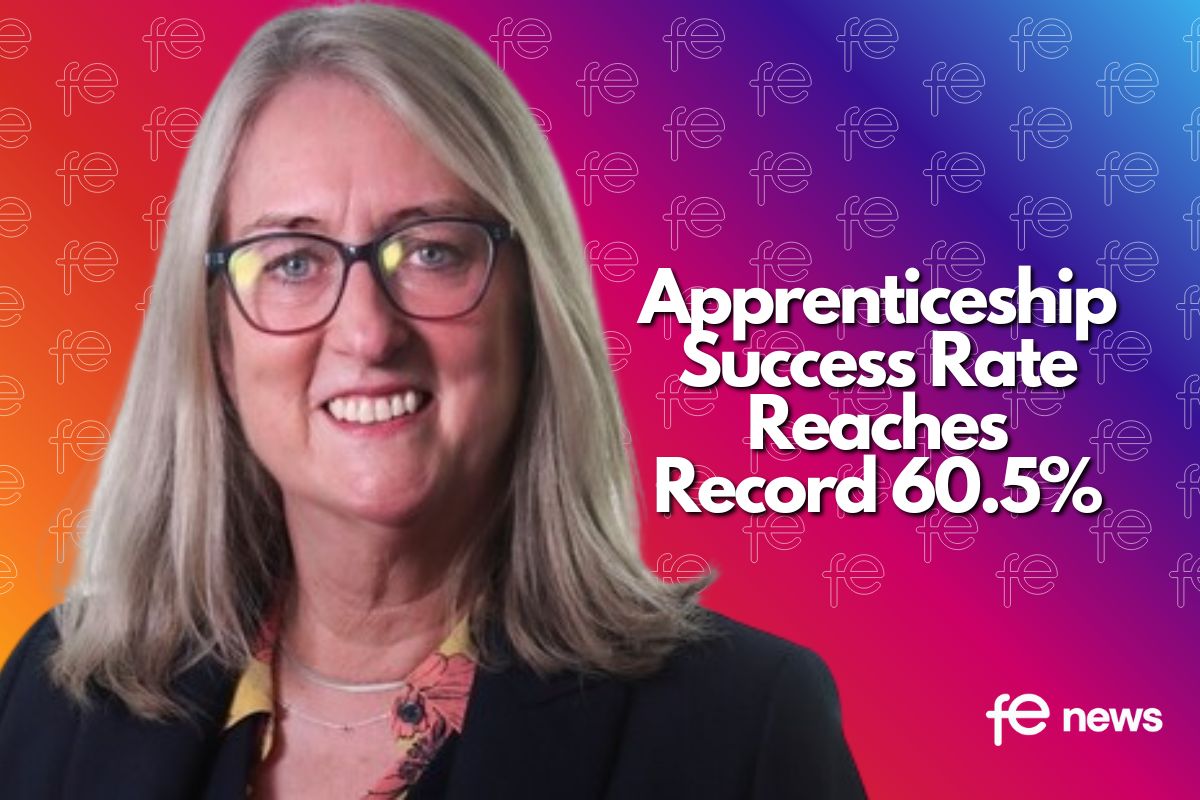The First Twelve Institutes of Technology Announced Backed by £170 million of Government Funding

New employer-led Institutes of Technology to offer top-quality, higher level technical education to help close skills gaps in key STEM areas. Part of Government’s plan to set more young people on a clear path to jobs that command higher wages and boost the nation’s productivity.
Twelve Institutes of Technology will be set up across the country to boost young people’s skills and set them on a clear path to a high skilled, high wage career, Education Secretary Damian Hinds has announced today (10 April 2019).
The Institutes will be unique collaborations between universities, Further Education colleges, and leading employers including top firms Nissan, Siemens and Microsoft.
They will specialise in delivering quality higher level technical training (at Level 4 and 5) in STEM subjects, such as digital, advanced manufacturing and engineering that will provide employers with the skilled workforce they need.
Institutes of Technology form a key part of the Government’s biggest shake up to technical education in a generation.
This includes introducing new T Levels from 2020 – the technical equivalent to A Levels – and more high-quality apprenticeship opportunities.
Our £170 million investment in Institutes of Technology will boost young people’s skills across the country and set them on a path to high skilled, high wage careers in #STEM #IndustrialStrategy https://t.co/mvE6uGlhyR pic.twitter.com/VYH1lE1twp
— DfE (@educationgovuk) April 10, 2019
 Prime Minister Theresa May said:
Prime Minister Theresa May said:
“I firmly believe that education is key to opening up opportunity for everyone – but to give our young people the skills they need to succeed, we need an education and training system which is more flexible and diverse than it is currently.
“New technologies are transforming the world of work, and to harness the opportunities on offer we must equip our future workforce with the technical skills they need to thrive, and that the economy needs to grow.
“These new Institutes will help end outdated perceptions that going to university is the only desirable route and build a system which harnesses the talents of our young people.”
In December 2018 the Education Secretary set out his 10 year ambition to upgrade the nation’s skills so more young people have the same high-quality training opportunities with clear pathways to skilled jobs as those in top performing technical education countries like Germany.
Research shows that only around 7 per cent of people in England aged between 18 and 65 are undertaking training at Level 4 or 5 – one of the lowest rates in the OECD.
Only around 190,000 people are currently studying for qualifications at this level compared with around 2 million studying across Level 3 (A Level or equivalent) and Level 6 (Degree level).
 Education Secretary Damian Hinds said:
Education Secretary Damian Hinds said:
“These new Institutes of Technology will be the pinnacle of technical training – new collaborations between universities, colleges and business to make sure young people have the skills they need to build a well-paid rewarding, career, while the economy gains the skilled workers it needs to be more productive.
“I’m determined to properly establish higher technical training in this country – so that it’s recognised and sought after by employers and young people alike. These Institutes are a key part of delivering this. We are transforming technical education including introducing new T Levels from 2020 and more high-quality apprenticeship opportunities. But we want more young people to progress and get the higher level qualifications that lead to high skilled, more rewarding jobs.
“Institutes of Technology will help employers to get the skilled workforce they need, especially in much sought-after STEM skills and will offer young people a clear path to a great, well paid career.”
The twelve Institutes will be backed by £170 million of Government investment so they have access to state-of-the-art equipment and facilities and will tap into the latest research from their university partners to anticipate the skills needs of the future workplace.
They will also benefit from additional support from local employers and partners, who will contribute valuable resources such as further investment, seconded teaching staff and equipment.
Institutes will build on and complement the further and higher education on offer in the areas where they are located but will have their own distinct identity and physical presence.
Some will be located in refurbished buildings, others will build new facilities on new or current sites.
They will provide a natural progression route for young people taking T Levels or A Levels (Level 3) enabling them to take the next step up to higher level technical education and training (Level 4 or 5) – like Foundation Degrees and higher level apprenticeships in STEM subjects – helping to upskill the next generation and ensure employers can access a high-quality pipeline of talent.
According to the CBI, the biggest growth in jobs in the years ahead is expected to be in management and professional and technical roles.
These roles will require the specialist skills which a higher technical training course could provide.
The Institutes include innovative collaborations such as Milton Keynes College, Cranfield University and Microsoft Ltd and New College Durham, Newcastle University and Siemens.
Matthew Fell, CBI Chief UK Policy Director, said:
“Expanding high-quality technical education and training is a top priority for employers who will welcome this extra investment.
“Institutes of Technology help bridge the gap between A-Levels or T-Levels, and a bachelors or degree apprenticeship – providing higher-level skills, especially in STEM, that businesses tell us time and again they need to succeed. These new Institutes must also help ensure T-Levels are a long-lasting part of our education system and open the door to great careers or further training.”
 David Hughes, Chief Executive of the Association of Colleges, said:
David Hughes, Chief Executive of the Association of Colleges, said:
“It is pleasing to see this new investment in technical education and skills going to colleges and universities working together to meet local and regional skills needs. Our prosperity and success as a nation requires greater focus on boosting productivity and providing more opportunities for people to have skills which support them in the labour market. Colleges will play a significant part in every Institute by building on their track record of delivering higher technical education, ensuring the pipeline of people able to progress to higher level skills and through their strong relationships with employers.”
 Peter Finegold, Head of Education & Skills at the Institution of Mechanical Engineers, comments:
Peter Finegold, Head of Education & Skills at the Institution of Mechanical Engineers, comments:
“We welcome the announcement of the successful bids to run the first 12 Institutes of Technology – any initiative that brings together universities, FE colleges and employers to deliver higher level STEM subject training is a positive step. The crucial measure of their success will be if the persistent engineering skills gap that has challenged employers is shown to diminish – especially in highly skilled technical roles.
“However, despite the Prime Minister’s assurance that these Institutes will end outdated perceptions that lead to a bias in this country against vocational skills and in favour of academic skills, the establishing of these important facilities cannot solve these deeply rooted cultural prejudices alone. They must be symbolic of a changing relationship between the academic and technical that better reflects the nature of our modern technological world. While the government should be commended on this latest example of a raft of policies supporting ‘vocational’ training such as apprenticeships, technical training and T-levels, the existence of the Institutes of Technology alone will not provide the ‘escape velocity’ to combat the powerful gravitational pull of A-levels-to-university in the eyes of young people, their teachers and their parents.
“The Institution of Mechanical Engineers has previously called for a UK-wide expert working group to explore innovative ways of better integrating engineering into young people’s broader education, particularly in our report “We think it’s important but don’t quite know what it is: The culture of engineering in schools.” As part of its remit, we would see this group taking on board the views recently expressed by former Education Minister and Chair of the Education Select Committee, Robert Halfon MP, highlighting that the 21st century requires an education that recognises both academic and technical skills – along with a young person’s personal development.”
 Elliot Gowans, senior VP International at D2L comments:
Elliot Gowans, senior VP International at D2L comments:
“The education system should be designed to help talented people succeed in a variety of industries and job types but, as the Prime Minister points out, there has been too much focus on university as the primary route to a successful career. Educational technology should play a key role in enabling these new ‘Institutes of Technology’.”
“Last week’s Education Technology Strategy announcement from Damian Hinds’ put technology and its many benefits at the heart of learning. If the Government truly wants to make education more inclusive, these new institutes must have access to the right tools to shape the education journey and reach every learner. Instead of employing traditional teaching methods, which will likely turn off many young vocational learners, these new institutes should look to new, technology-driven learning models such as personalised learning pathways, bite-sized content and gamification. These new vocational and technical training courses should be available anytime, anywhere, via the channels young students prefer, like mobile and video. This will increase the efficacy of these new institutes and produce better outcomes for their students.”
Ann Swain, Chief Executive of APSCo, said:
“Our members continue to report that skills shortages in areas such as aerospace, artificial intelligence and the automotive sectors are acute. However, a highly skilled workforce is vital to delivering the Government’s industrial strategy.
“With this in mind, we welcome the introduction of these institutes, which should go some way in helping to bridge future talent gaps. Targeted investment in further education to support these sectors will ensure a sustainable pipeline of skilled talent to fill the new employment opportunities created through the Government’s push to rebalance the UK economy.”
Josh Graff, UK Country Manager at LinkedIn, said:
“The announcement today of £170m investment into new Institutes of Technology is a welcome step towards preparing the next generation for the world of work. We know that the tech skills required by businesses are changing at a rapid rate – LinkedIn data has found that the average useful shelf-life of skills and knowledge has shrunk to less than five years.
“These Institutes will therefore play a vital role in securing Britain’s future talent pipeline and preparing young people with the skills they need to maintain our position at the forefront of the global tech economy. Connecting the institutes to local businesses will also mean that the courses are highly relevant – boosting the future prospects of young people, and local areas alike.
“But while this focus and investment on tech skills is laudable, it must not be done at the expense of soft skills. While advances in automation may leave some occupations obsolete, our data shows that roles that require an understanding of human behaviour are growing faster than ever and we must make sure that we’re encouraging the future generation to value and acquire hard and soft skills alike.”
The 5% Club represents more than 360 businesses across the UK, all committed to offering ‘earn and learn’ training opportunities, including apprenticeships, graduate development schemes and sponsored student schemes.
Lady Cobham CBE, Director General of The 5% Club, said:
“The 5% Club welcomes the government’s announcement of 12 ‘Institutes of Technology’ in England. Providing young people with vocational alternatives to university is a key part of the push for a parity of esteem between traditional and vocational systems. Apprenticeships should no longer be seen as ‘second best’ or as a less-prestigious route into employment.
“However, the new ‘Institutes of Technology’’ should not be seen as a ‘silver bullet’ for the growing skills crisis. With Brexit looming, businesses must encourage ‘home grown’ talent to fill existing skills gaps if we are to be able to compete on a global level. Apprenticeships are a vital way to fill these skills gaps.
“The Government needs to allow businesses to fund travel for young people to get to apprenticeship opportunities, like these new institutes, in all parts of the country through its Apprenticeships Levy. It needs to broaden the types of high-quality technical training employers can invest in using the levy. And it needs to make it simpler to apply for apprenticeship schemes by introducing a UCAS-style scheme.
Only then can the UK deliver the huge number of apprenticeships which young people and the UK economy needs.”
The Government is carrying out a review of qualifications at Level 4 and 5 so that more people have access to a wider choice of high quality options as an alternative to a university degree.
Initial findings from the review have revealed that these qualifications could be the key to unlocking the skills demanded by employers and lead to rewarding, well-paid jobs.
The benefits of studying a qualification at Level 4 or 5, include increased earning potential and employability and a growing demand for qualifications at this level from employers in key sectors such as Engineering.
The Level 4 and 5 review will complement the Government’s Augar Review of post-18 education and funding to ensure the system is joined up, accessible to all and encourages the development of the skills the country needs.
This is central to the Government’s modern Industrial Strategy, which aims to make sure everyone is equipped for the jobs of the future.
Today’s announcement signals the end of a rigorous two stage competition. The pre-award stage will now commence where the detail of each Institutes licence agreements and capital funding will be agreed.
Following this, Institutes of Technology will receive their licence to operate and start to access their capital funding so that they can develop the buildings and facilities needed.
The first Institutes are expected to open from September 2019.
All Institutes of Technology must hold an Ofsted ‘good’ or ‘outstanding’ rating at the time the licence and capital funding agreements are signed.
Details of Institutes of Technology
|
Lead applicant |
Further Education providers |
Universities |
Employers |
Sector specialisms |
|
Barking and Dagenham College |
Barking and Dagenham College |
Coventry University |
Huawei, Saint Gobain, TfL |
|
|
Dudley College of Technology |
Dudley College of Technology, In-Comm Training & Business Services Ltd |
University of Wolverhampton, University of Worcester |
Thomas Dudley Ltd, Fulcro COINS, The Dudley Group NHS Foundation Trust, Marches Centre for Manufacturing Technology |
|
|
HCUC (Harrow College & Uxbridge College) |
HCUC |
Brunel University London |
Heathrow, Fujitsu, West London Business |
|
|
Milton Keynes College |
Milton Keynes College, Activate Learning |
Cranfield University |
Microsoft Ltd, KPMG, Evidence Talks, McAfee, VWFS (Volkswagen Financial Services) |
|
|
New College Durham |
New College Durham, NA College Trust, Middlesbrough College, Sunderland College, Tyne Coast College, East Durham College |
Newcastle University |
Nissan Motor Company Ltd, ESH Group Ltd |
|
|
Queen Mary University of London |
Newham College |
Queen Mary University of London |
Siemens, Port of London Authority, London and Regional Properties |
|
|
Solihull College & University Centre |
Solihull College & University Centre, South & City College Birmingham, Birmingham Metropolitan College (BMet) |
Aston University, Birmingham City University, University of Birmingham, University College Birmingham |
Bosch Thermotechnology Ltd, Salts Healthcare |
|
|
Swindon College |
Swindon College, New College Swindon |
University of Gloucester |
Nationwide, Catalent Pharma Solutions, Excalibur Communications Ltd, BMW Group, Appsbroker Consulting Ltd, Hartham Park, Recycling Technologies, Render, Create Studios |
|
|
University of Exeter |
Bridgwater & Taunton College, City College Plymouth, Exeter College, Petroc, Truro & Penwith College |
University of Exeter, University of Plymouth |
Babcock, Met Office, Oxygen House, TDK Lambda |
|
|
University of Lincoln |
Grimsby Institute of Further and Higher Education, DN Colleges Group (North Lindsey College), Lincoln College, Boston College, Grantham College, Bishop Burton (Riseholme College), Lincoln UTC |
University of Lincoln |
Siemens, Bakkavor Ltd, Olympus Automation Limited |
|
|
Weston College of Further and Higher Education |
Weston College of Further and Higher Education, Bath College, Gloucester College, Yeovil College, City of Bristol College |
University of the West of England (UWE Bristol) |
Airbus, GE Aviation, GKN Aerospace, JISC, National Composites Centre, North Somerset Council, Mayden Academy, Renishaw, St Monica Trust, Tech Op Solutions Ltd, Weston Area Health NHS Trust |
|
|
York College |
York College, Grimsby Institute of Further and Higher Education (Scarborough TEC), Askham Bryan College, Bishop Burton College, Craven College, East Riding College, Selby College |
University of Hull, University of York St John |
ENEGIE Fabricom, Skipton Building Society, GB Recruitment |
|











Responses